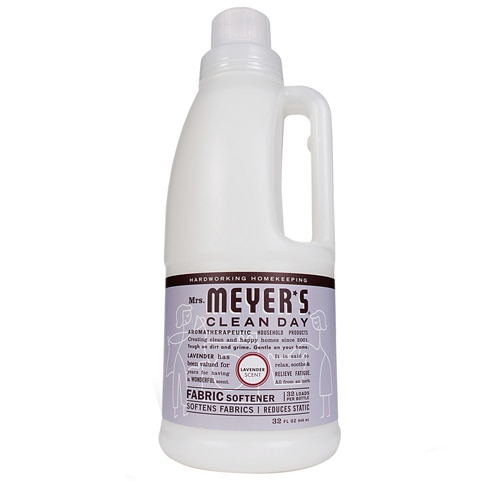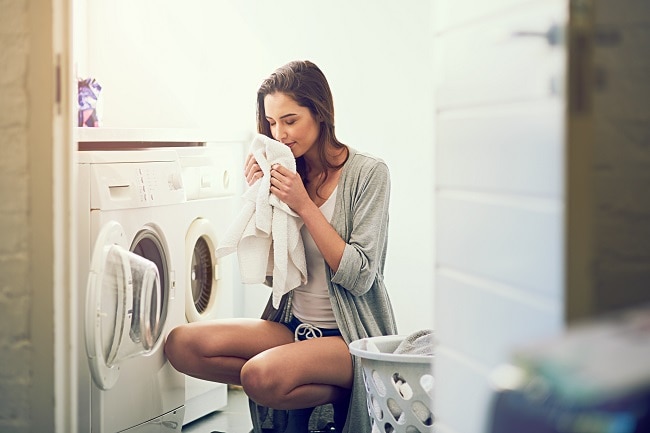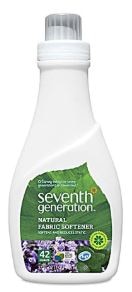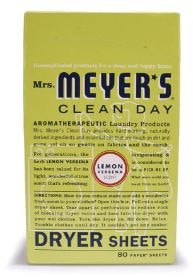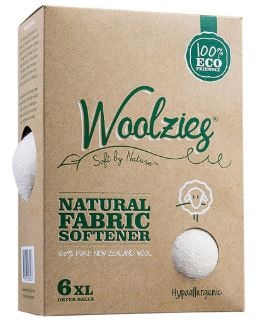Sure, you want your clothing, towels and bedding to feel soft and fluffy. But how much thought have you really given to using and choosing a fabric softener?
To ensure laundry is fresh and clean, it should be washed with detergent. That’s a no-brainer, right? But do all items require fabric softener? And if so, what kind should you use? And when should you use it?
Let’s begin with the basics…
Liquid fabric softener should be added to your wash during the rinse cycle. It works by coating the fibers of your laundry to make it fragrant, fluffy and soft. It also reduces that annoying static cling.
Fabric softener sheets (a.k.a. dryer sheets), on the other hand, should be added at the beginning of the dryer cycle. When exposed to heat and tumbling, their positively-charged ingredients loosely bond to negatively-charged fabrics, counteracting the charge and serving as a lubricant. The result: soft, fluffy, fresh and static-free laundry.
Fabric softener balls (a.k.a. dryer balls) work much like dryer sheets except, as their name implies, they are in ball form. And finally, crystal fabric softener, a relatively new product, is added to the wash tub at the same time you toss in your laundry. It works by filling out and fluffing up fabric fibers instead of coating them.
Is fabric softener necessary?
Unless you are laundering especially delicate fabrics, like baby clothes, you probably want to use fabric softener with every load. Doing so offers several advantages, including:
- Deodorizing fabrics. Fabric softeners can make your fabrics smell—and remain—fragrant and fresh for extended periods.
- Maintaining clothing and linens. Fabric softeners can help keep your fabrics looking and feeling fresh over time.
- Improving ironing. Because they straighten fibers in fabrics, fabric softeners may make clothes and linens easier to iron.
How to choose fabric softener
Although preferences may vary, there are some common considerations when selecting a fabric softener. Consider one that:
- Smells pleasant. Fabric softener is available in a wide range of fragrances, from rose petal to rosemary. Or, if you are sensitive to scents, opt for an unscented variety.
- Won’t irritate your skin. Fabric softener shouldn’t contribute to rashes, eczema or other skin conditions. If your skin is sensitive, choose a fabric softener that’s hypoallergenic.
- Is environmentally friendly. Not all fabric softener is gentle on Mother Earth. Look for a natural, reusable or compostable fabric softener you can feel good about.
A few helpful tips
Here are some final things to keep in mind when choosing and using fabric softener.
- Try a few different types, fragrances and/or brands to determine which fabric softener works best for your household.
- Be sure to use the recommended amount of liquid fabric softener for your load. If you are uncertain how much to add to your wash, check the product instructions.
- Check your washing machine manual if you are uncertain how or where (e.g., agitator, cavity, dispenser or drawer) to add liquid fabric softener to your wash. Instruction will vary by manufacturer and model.
- After your wash is finished, dry your clothes and linens thoroughly. Your clothes may maintain their scent longer if you hang dry them after using liquid fabric softener. Plus, you’ll save energy!



